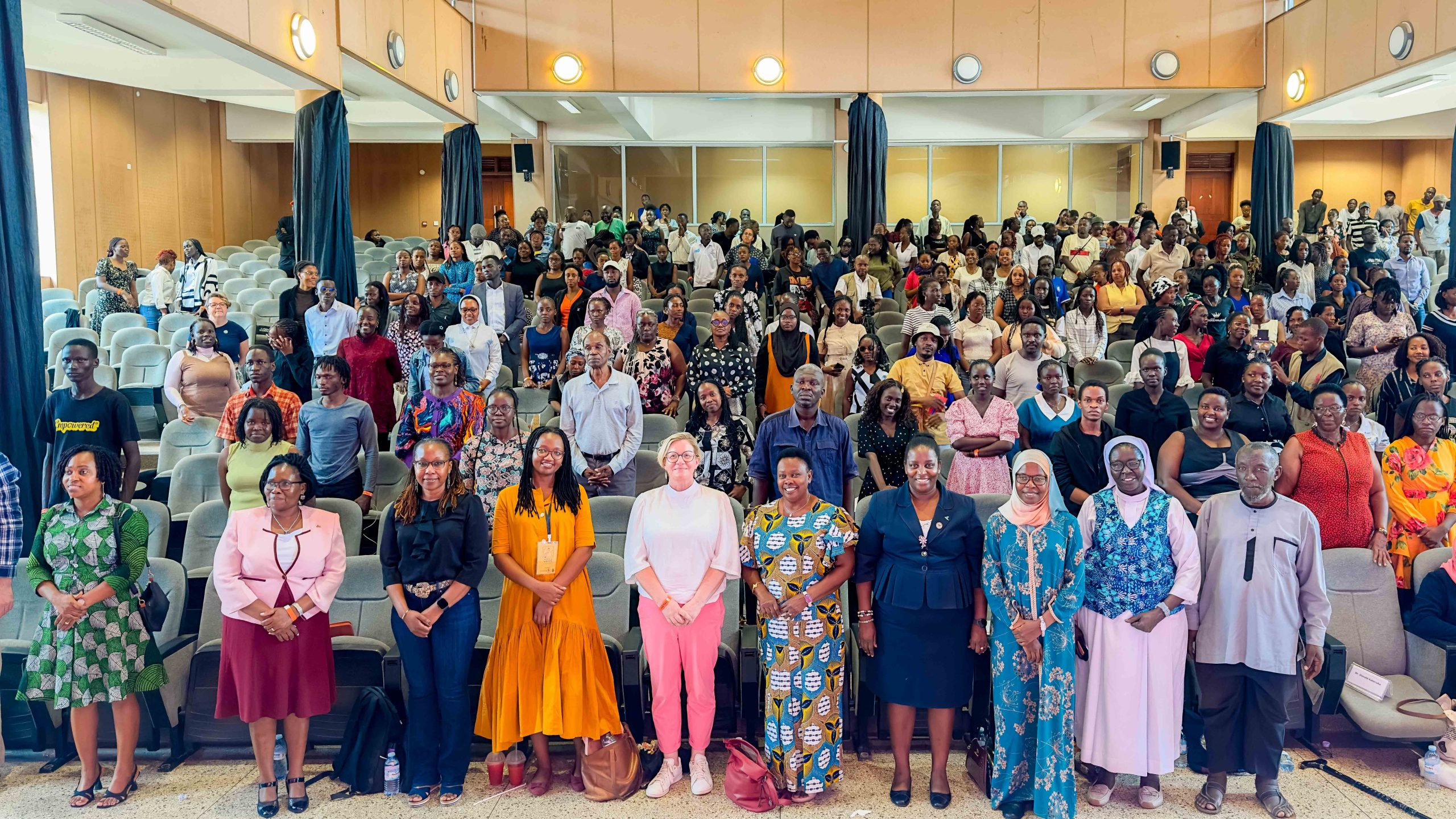KAMPALA, UGANDA – Acclaimed Ugandan author and academic Dr. Jennifer Nansubuga Makumbi has issued a call to action for the promotion of African languages, warning that their marginalization is leading to a deep cultural erosion across the continent.
Delivering the keynote address at the opening of the 2nd edition of the Kampala Writes Literature Festival (August 15 -17th 2025) at Makerere University, Makumbi emphasized that indigenous languages are critical to African identity, belonging, and intellectual sovereignty.
The Kampala Writes Literature Festival, now in its second edition, was organized by Goethe-Zentrum Kampala, in partnership with Makerere University’s Department of Literature, the British Council, the African Writers Trust and the German Embassy in Kampala. It aims to connect emerging writers with established voices and foster dialogue around African storytelling traditions.
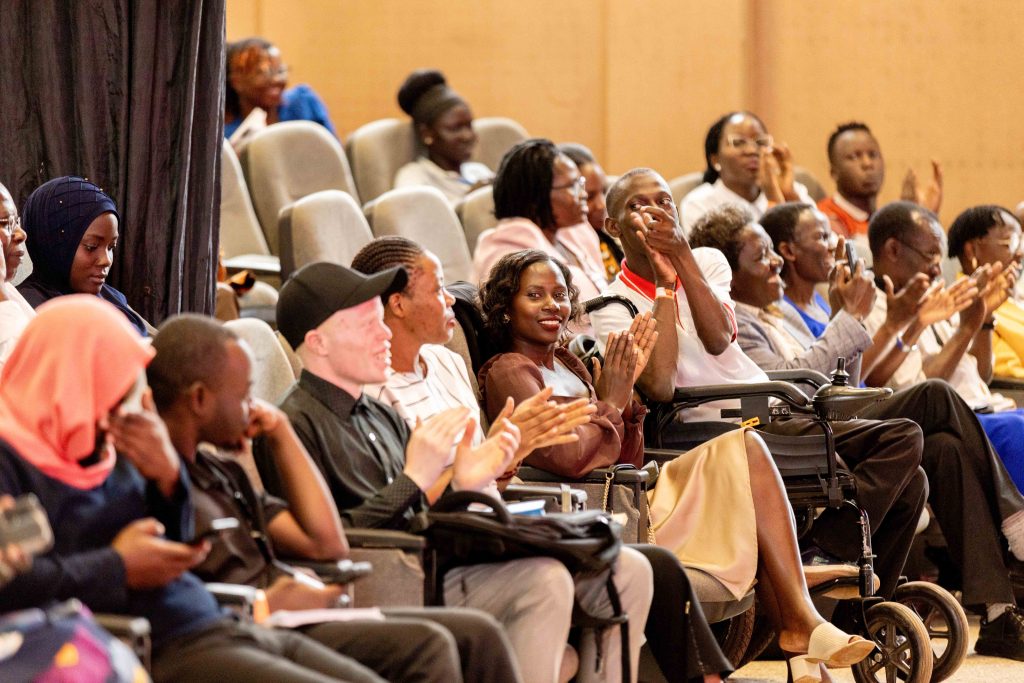
Held at Makerere University’s Yusuf Lule Auditorium, the festival convened writers, poets, academics, and students including participants from the UK, Ghana, Kenya, Nigeria, Somalia, and Ugandato explore the theme of Belonging through speeches, panel discussions on publishing, diaspora identity, arts funding, and screenwriting; workshops for students and emerging writers; and public book fairs and performances
The festival was officially opened by the Vice Chancellor Makerere University represented by Assoc. Prof. Helen Nambalirwa Nkabala who is also the Principal College of Humanities and Social Sciences (CHUSS)
Speaking to a hall filled with students, academics, writers, and literary enthusiasts, Makumbi said Western languages, particularly English, have become both unifying and destructive forces. “These languages are wonderful because I can talk to everyone in Uganda and Anglophone Africa,” she said. “But at the same time, these languages can be cannibalistic. They cannibalize our languages.”
Makumbi warned that linguistic loss is accelerating globally, citing the disappearance of around 2,000 languages every month. She added that local languages in Uganda are increasingly being perceived as incapable of carrying “sophisticated thought.” She expressed concern that African children are often pressured to learn English from birth, sidelining their mother tongues as less valuable.
“One day, all of us will speak English,” she cautioned, “and we will look back and realize what we lost—our languages, our cultures, our ways of thinking.”
She began her address by paying tribute to literary forebears such as Ervania Namukwaya, Rose Mbowa, Joanita Maganda, and the late Mary Okurut, acknowledging she stood “on the shoulders of literary ancestors.” Makumbi also praised Ugandan educators for maintaining strong syllabi in literature and history despite systemic challenges.
The Complex Nature of Belonging
Makumbi explored the multi-layered concept of belonging, drawing on personal experiences from her school years at Trinity College Nabingo, her migration to the UK, and her literary journey. She recalled how linguistic and cultural divisions shaped student social groups, especially the dominance of Luganda over other regional languages.
She recounted how girls from western Uganda would form tight-knit circles based on language and food customs—behaviors that were often misunderstood or mocked. Years later, living abroad, she found herself doing the same—gravitating toward fellow Africans for connection and comfort.
“We were creating new belongings in the face of unbelonging,” she said.
Makumbi underscored that belonging is dynamic and deeply personal, rooted in identity and community. Citing scholars like Ishta Mehra and Radha Agrawal, she described belonging as “a space of comfort and well-being” essential in an increasingly globalized world.
Storytelling as a Tool for Cultural Preservation
Makumbi positioned storytelling as central to the preservation of culture and identity. Citing Ngũgĩ wa Thiong’o’s The River Between, she explained how literature affirms cultural identity and offers readers an immersive sense of place and belonging.
“Stories are the blood of belonging,” she said. “They inform, educate, preserve culture, and inspire communities.”
She rejected the notion that Ugandans don’t read, recalling a vibrant underground book-trading scene at Nabingo. She praised the hidden but thriving literary enthusiasm among Ugandan youth, which she argued crosses class and tribal lines.
Confronting Stereotypes and Shifting Notions of Home
Makumbi also addressed the impact of stereotype threat—the pressure to overachieve in order to disprove prejudice. She shared her experiences as a postgraduate student in the UK, where racial and cultural assumptions challenged her confidence until her academic success proved otherwise.
Her keynote reflected a shift in her own understanding of “home.” For years, she longed to return to Uganda, saving money to build a house. But after nearly losing her UK residency due to travel limits on her visa, she was forced to reconsider.
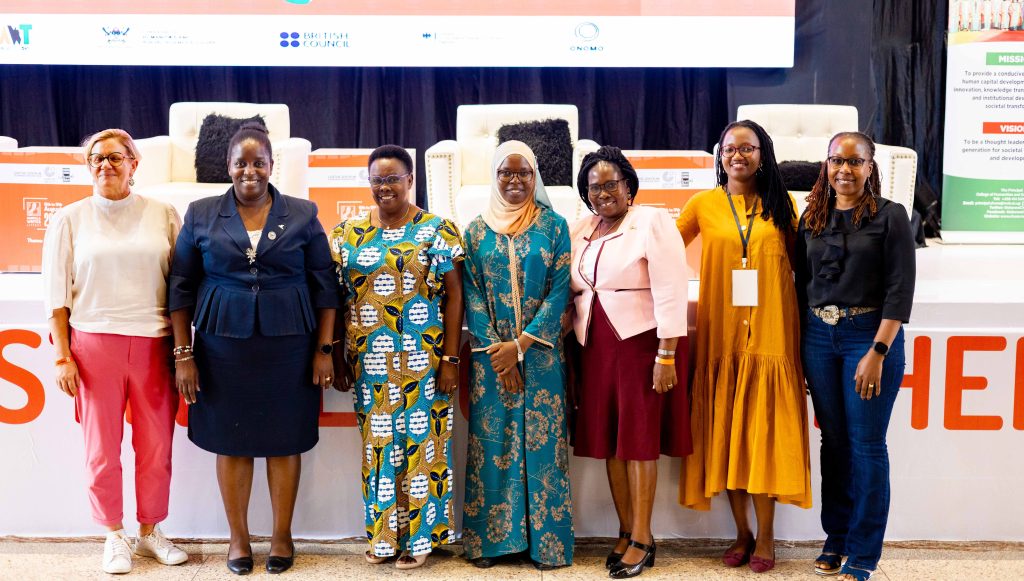
“For the first time, I’m making my flat in Manchester a place I want to come back home to—rather than a point of transit,” she said.
Though grateful for the opportunities she’s found abroad, Makumbi remains critical of both Britain and Uganda. She challenged Ugandans to confront internal forms of exclusion—whether based on tribe, language, gender, or class—and to expand the nation’s definitions of identity and community.
The Dark Side of Belonging
Makumbi warned of the “dark side“ of belonging—when inclusion comes at the cost of individuality or when social groups impose rigid expectations. She cited cases of ostracization, such as schoolgirls expelled after teenage pregnancies, or children of Ugandan immigrants in the West drawn into gangs as they search for protection and identity.
“Two boys destroyed—one into a coffin, the other into prison—because their parents were seeking belonging in the First World while the boys sought protection in gangs,” she said.
Makumbi argued that the need to belong can be exploited—used to control, suppress, or exclude those who deviate from the group’s norms. Even in families, belonging can be conditional, especially for women and firstborn children whose sacrifices often go unrecognized.
A Call to Reclaim Languages and Rethink Identity
Makumbi ended her keynote with a passionate appeal for Ugandans to reclaim their languages, cultures, and spaces—and for institutions like Makerere University to lead the way. She stressed that language is not just a communication tool, but a vessel of history, identity, and cultural survival.
“With our languages go our cultures,” she said. “And when we lose them, we lose not just words—but worlds.”
She called for inclusive educational policies, investment in local languages, and a society that values all its members regardless of background.
“Belonging is as essential as food, shelter, and safety. If we want a better Uganda, we must check ourselves on how we include and how we exclude.”
As applause filled the hall, it was clear Makumbi had not merely delivered a keynote—but sparked a national conversation on the future of language, identity, and what it truly means to belong.
Makerere Celebrates Belonging and Literary Heritage- Prof. Helen Nkabala
Representing Vice Chancellor at the opening ceremony, Prof. Helen Nambalirwa Nkabala emphasized the importance of the humanities in bridging society and science. She underscored Makerere’s historical and ongoing role as a center of intellectual and cultural leadership in Africa.
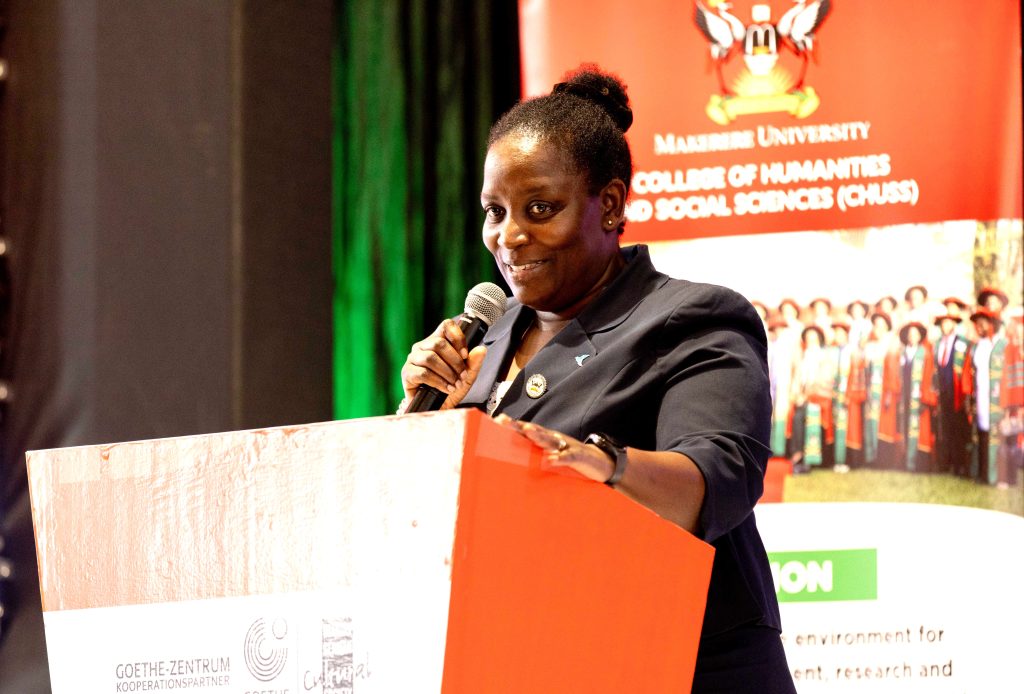
“We are the bridge between society and science, between action and development,” said Prof. Nkabala. “We are the vehicle of societal transformation. We are the heart and soul of this university.”
Nkabala expressed pride in the university’s deep-rooted ties to African literature, dating back to the landmark 1962 Conference of African Writers of English Expression. She emphasized that the festival not only honors literary excellence but also reinforces the university’s vision of being research-led and culturally grounded.
“We gather here not just to attend this event, but as a community united by our shared passion for Ugandan and African literature,” the Vice Chancellor stated. She called for stronger efforts to support writers and storytellers as agents of national and continental development.
Prof. Nkabala also lauded the participation of students and reminded them to seize the moment: “This is the best classroom our dear students will ever have. Learn. Pick up your intelligence and your talent. You are being nurtured by a village in this very room.”
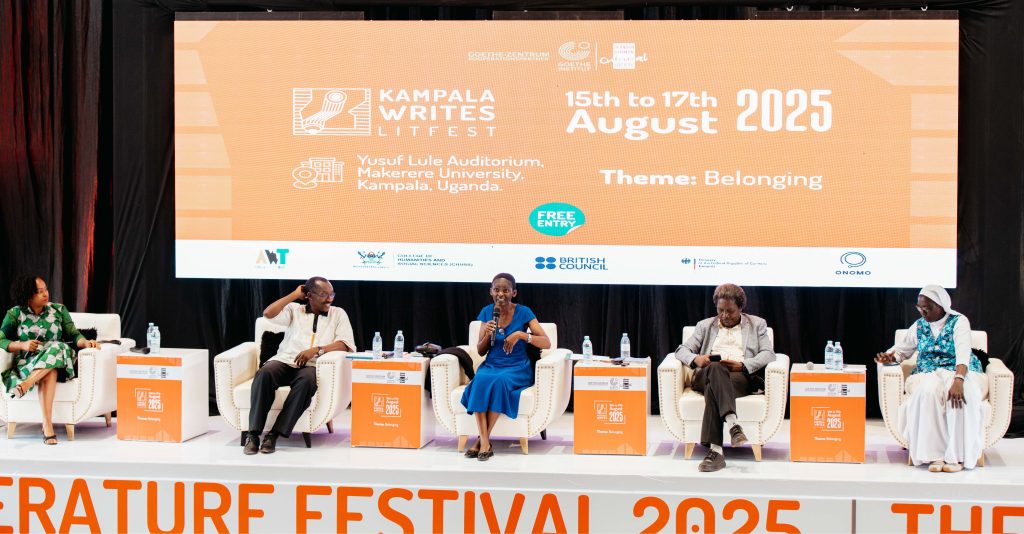
A moment of silence was observed for African literary icons who passed away recently, including Ngũgĩ wa Thiong’o and Mary Karooro Okurut, as part of a tribute to their contributions to the African literary landscape.
Nkabala recognized the keynote speaker, and celebrated Ugandan author Jennifer Nansubuga Makumbi, whose presence was facilitated by the British Council. She described her return to Makerere -her alma mater – as a homecoming and a reaffirmation of Uganda’s place in global literature.
Nkabala expressed hope that the festival will continue to foster dialogue between African writers on the continent and those in the diaspora, while strengthening the visibility of Uganda’s literary sector.
Prof. Nkabala acknowledged the team behnd the organization and appreciated all the partners and sponsors of the event and participants for honoring the invitation.
“We define ourselves,” Prof. Nkabala declared. “We are here to occupy the spaces that matter—and that’s how far we can go.”
“Festival Encourages Ugandan Minds to Dream, Reflect, and Connect”-Dr. Aisha Nakiwala
Representing Prof. Sauda Namyalo, Dean of the School of Languages, Literature, and Communication, Dr. Aisha Nakiwala, Head of the Department of Journalism and Communication, delivered a message that highlighted the broader cultural and educational impact of the festival.
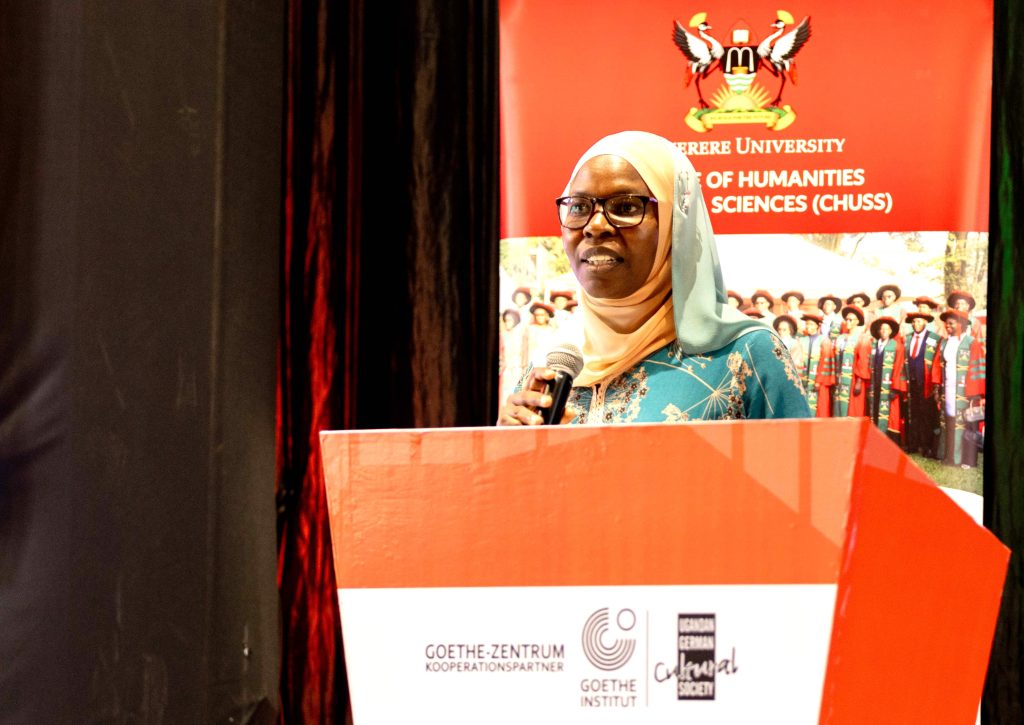
“We are very happy that the Department of Literature, in partnership with Goethe-Zentrum and the British Council, worked hard to reach this day,” she said, reading Prof. Namyalo’s speech. “This event not only supports our students’ growth but also reminds us of the value of heritage, language, and imagination.”
The Dean’s remarks praised Goretti Kyomuhendo for her role as curator and congratulated her on the upcoming launch of her new novel, Promises, during the festival.
“This festival encourages Ugandan minds to think about who we are, how we came to be, and what our country will look like even when we are no longer here,” read the speech.
Dr. Nakiwala emphasized the significance of hosting writers from both Uganda and the diaspora, noting that it allows students to “think beyond borders” and understand Uganda’s place in a global literary context.
“This is more than an event. It is a learning platform — a space where our own stories meet global narratives, and where we begin to see ourselves and our communities in a new light,” she added.
She closed by thanking the Department of Literature and festival partners for giving the university a rare opportunity to interact with the wider literary community.
“Literature is a Laboratory for the Human Condition” -Dr. Eve Nabulya:
In her welcoming address, Dr. Eve Nabulya, Head of the Department of Literature at Makerere, praised the festival’s organizers and partners including the Goethe-Zentrum Kampala, British Council Uganda, and the African Writers Trust for their commitment to providing a platform for literary exchange.
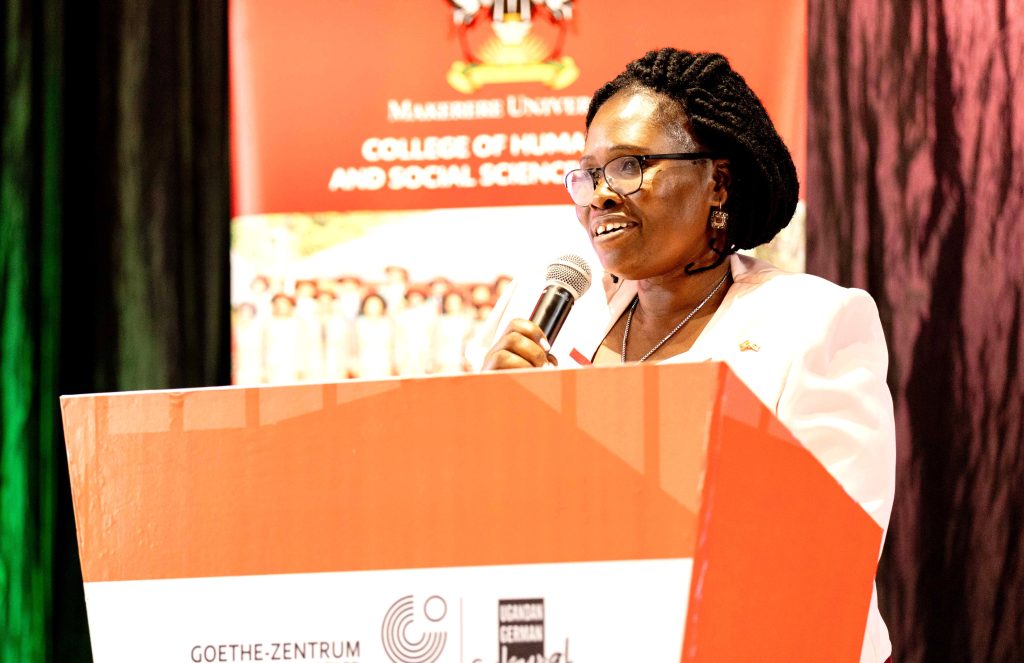
“Because this festival is here, many of our students – the next generation of writers have gotten an opportunity to attend,” she said, inviting the students in attendance to wave and be recognized.
Dr. Nabulya paid special tribute to Prof. Susan Kiguli, who led Makerere’s internal organizing committee, and to Prof. Helen Nkabala, Principal of the College of Humanities and Social Sciences, for supporting the department’s role in hosting the event.
Moving beyond acknowledgments, Dr. Nabulya offered a passionate defense of literature as a field of study, especially at a time when physical sciences are prioritized in education systems.
“This year’s theme of belonging comes at a time when literature perhaps has the greatest urgency to explain why we exist,” she said. “Students in Uganda often have to sacrifice a lot to pursue literature at O-level and A-level. Yet literature contributes enormously to achieving the Sustainable Development Goals.”
She described literary works as “stable hypothetical worlds” that function like laboratories where the human condition is observed and understood. “You can experiment with ideas in fiction, over and over, and arrive at deeper truths,” she noted.
Dr. Nabulya concluded by encouraging writers present to continue producing work that serves both the reader and the critic. “Even when people think you can’t read Shakespeare to the water hyacinth,” she said humorously, “you are still contributing to human development.”
“Stories Are the Bridge Between Home and Host Land”- Goretti Kyomuhendo
Festival curator and founder of the African Writers Trust, Goretti Kyomuhendo, set the tone with an emotive and philosophical reflection on the power of storytelling to define and reclaim belonging in a fragmented world.
“Belonging is an essential human need—the desire to be accepted, to be understood, to be connected,” Kyomuhendo said. “Through literature, this concept is broadened. Stories become the bridge between home and host land.”
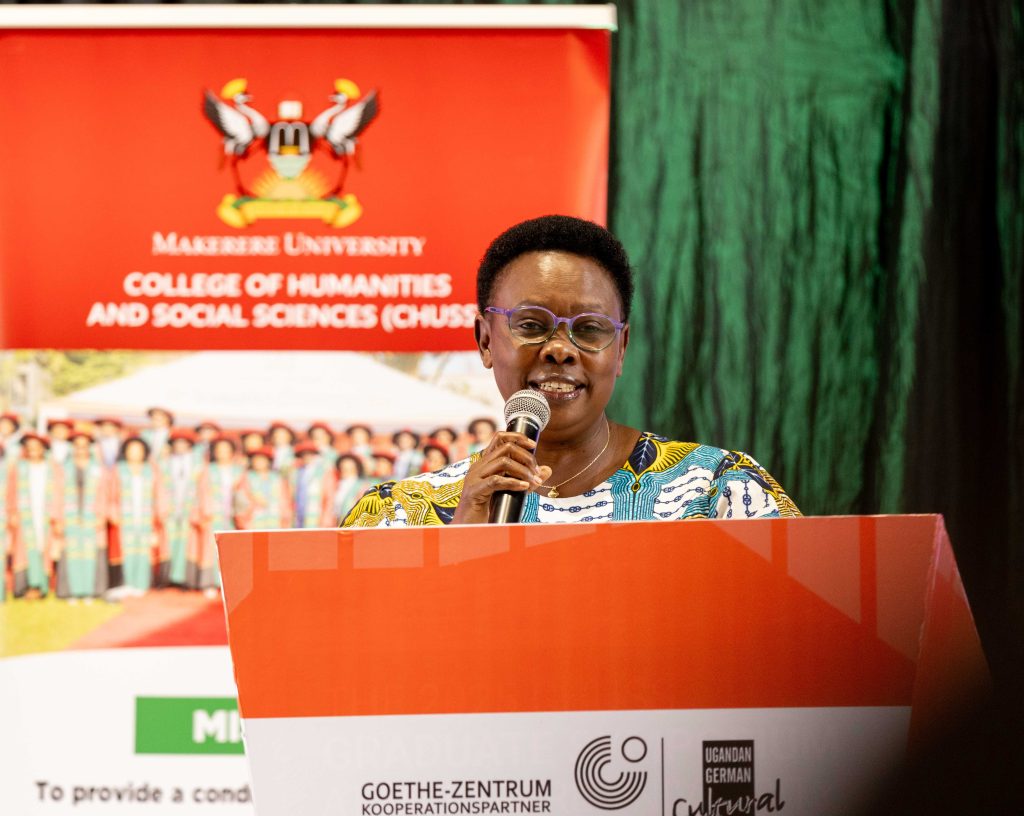
Kyomuhendo welcomed over 30 speakers, both local and international, including celebrated guests such as poet Nick Makoha from the UK, literary agent Mercy Mwiruki from Nairobi, Nigerian publisher Anuri, and Somali author Faduma, who visited Uganda for the first time.
She also celebrated Joshua Duwama, the 25-year-old Ugandan winner of the 2025 Commonwealth Short Story Prize (Africa Region), calling him a beacon for emerging African voices.
Speaking on the festival’s theme, she added: “As global displacement and nationalism rise, the question of where and how we belong has become urgent. This festival is as important as it is timely.”
Kyomuhendo also teased several highlights, including keynote speeches, funding panels, and the launch of her own latest novel, adding humorously, “You better have faith in me. If you don’t enjoy yourselves, well—we’ll organize another one next year!”
“A Space for Writers to Gather and Engage”- Sheila Akwany
Sheila Akwany, Director of Goethe-Zentrum Kampala and lead organizer of the festival, reflected on the motivation behind its founding, citing a gap in Uganda’s literary scene.
“There was just no space for writers to gather, to launch their work, to talk books, and to engage in peer-to-peer exchange,” she said. “That’s the gap this festival seeks to fill.”
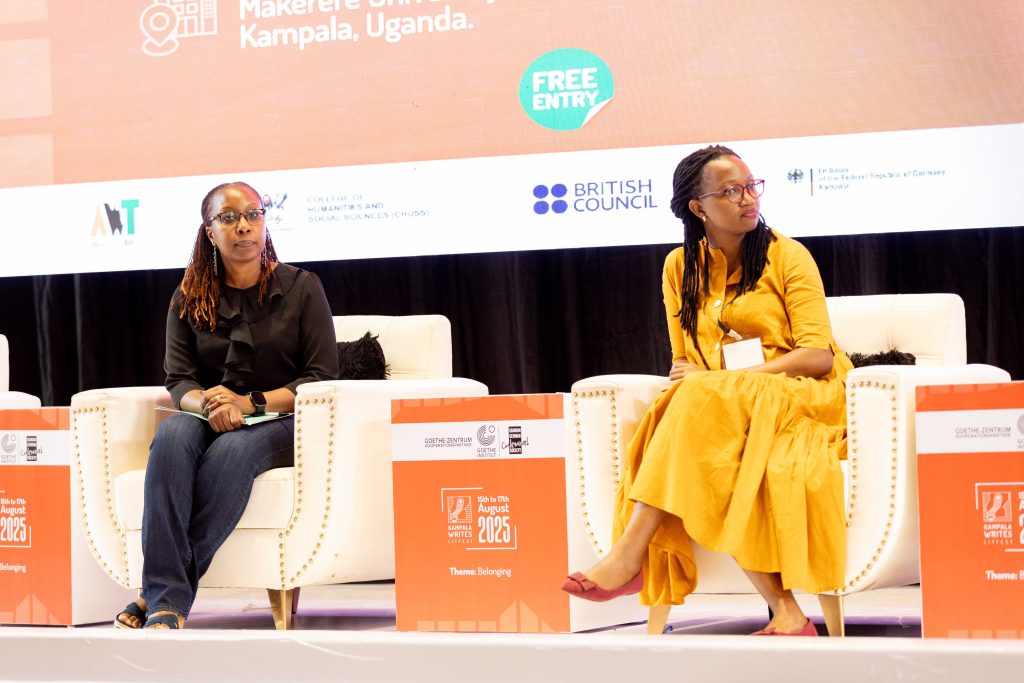
Now in its second year, the festival has grown significantly, with more international partners and diverse programming. Akwany thanked Makerere University’s Department of Literature, the British Council, and other collaborators who brought the event to life.
She also spoke personally on the theme of belonging, noting that even as an African, cultural differences across the continent can complicate the notion of home. “It’s a very complex and complicated topic—what does it mean to belong, and is it even a choice?” she asked.
Her remarks emphasized the value of literature as a meeting ground: “We’ve tried to create a meaningful mix of programming for you this year—from engaging panels to workshops and performances.”
“Belonging Is Being Present Without Explanation” – Millicent Mugabi
Millicent Mugabi, British Council Country Director in Uganda, offered her own intimate perspective, linking the festival’s theme to the British Council’s broader mission to foster cultural connection and mutual understanding.
“Belonging, to me, means I can exist in a space and not have to explain myself,” Mugabi said. “It means I don’t need to justify who I am or why I am there. It is just me.”
She praised the collaborative vision of the festival team, particularly curator Goretti Kyomuhendo, and celebrated the British Council’s role in facilitating the presence of keynote speaker Dr. Jennifer Nansubuga Makumbi, poet Nick Makoha, and others.
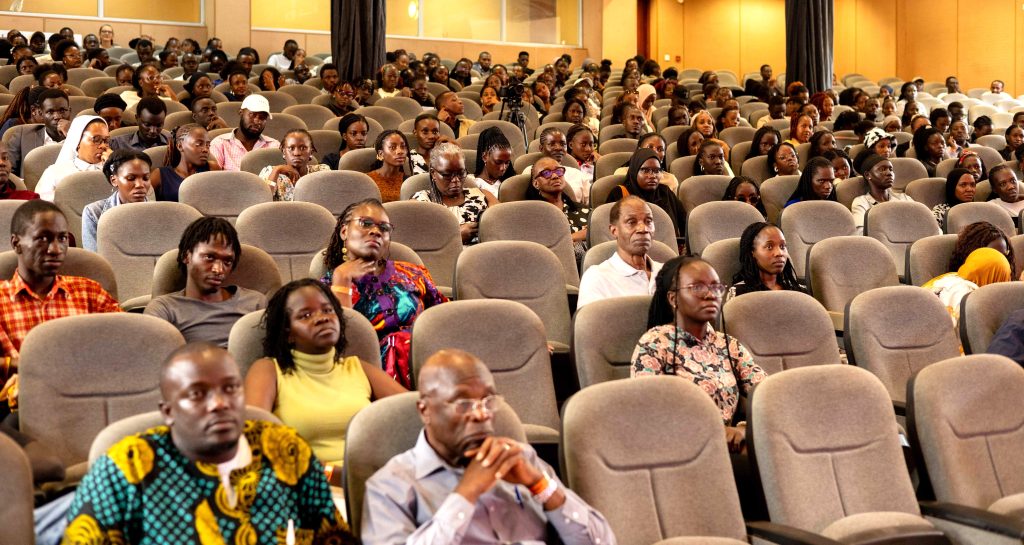
The festival, Mugabi noted, aligns with the British Council’s Culture Connects program, which uses the arts to “spark dialogue and inspire change.” She emphasized that the Council’s cultural work thrives on partnerships: “We convene. We facilitate. But it’s the partners and artists who do the work.”
Mugabi encouraged all attendees seasoned writers and first-time readers alike to engage fully. “Let this festival help us discover, rediscover, and reinforce our sense of belonging. And may we do so together. May these next few days offer not just inspiration, but connection. Not just ideas, but community. Not just books but belonging.”
You can also watch the festival at: https://www.youtube.com/watch?v=d2SN2KPgeiY

